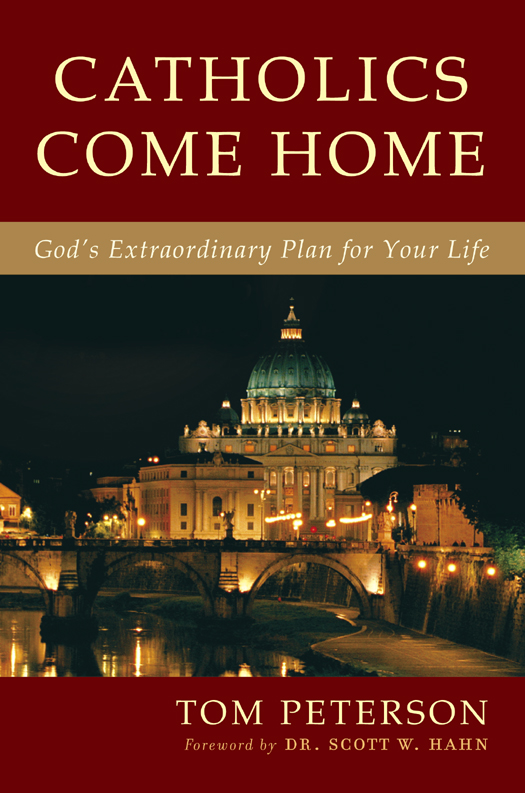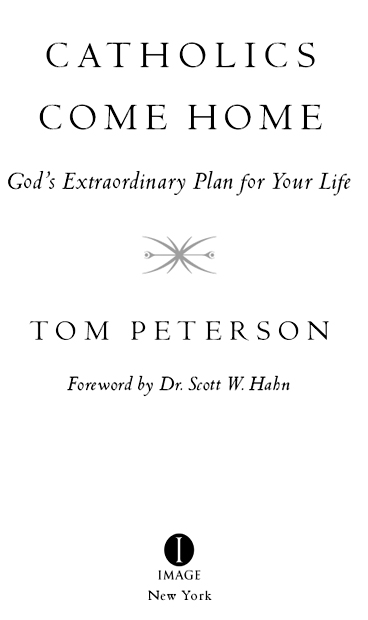Catholics Come Home is a registered trademark of Catholics Come Home, Inc.
Evangomercial is a trademark of Catholics Come Home, Inc.
VirtueMedia is a trademark of VirtueMedia, Inc.
Copyright 2013 by Thomas B. Peterson
All rights reserved.
Published in the United States by Image, an imprint of the Crown Publishing Group, a division of Random House, Inc., New York.
www.crownpublishing.com
IMAGE is a registered trademark, and the I colophon is a trademark of Random House, Inc.
Library of Congress Cataloging-in-Publication Data is available upon request
eISBN: 978-0-385-34718-1
Cover design: Holly Jonas
Cover photograph: Courtesy of Catholics Come Home
v3.1
Dedicated to my beloved wife, Tricia, and our incredible daughters, Katie, Kimberly, and Tina
Contents
Foreword
BY D R . S COTT W. H AHN
We are in the midst of a New Evangelization, and I believe this book is a signal moment in its success. This book is a grace from God. It is also a sign that will lead many folks back home to the family of God, which is the Catholic Church.
Perhaps it would be good to explain what is meant by the New Evangelization. After all, Catholics have been hearing about it for the last few decades. During the pontificate of Blessed John Paul II, we heard of it often. It was something he saw very clearly, as if on the horizon. Its a destination toward which he patiently moved us. Way back in 1979, near the beginning of his reign as pope, he mentioned it in passing when he spoke at Nowa Huta, Poland, which was then a communist workers paradise and is now a Christian pilgrimage destination (because John Paul preached there). In 1983 he spoke of the New Evangelization for the first time in a focused, intentional way, and it was already programmatic. It defined a vision. He said, while speaking to the bishops of Latin America, that the New Evangelization was to be officially launched in 1992, because that would mark the five hundredth anniversary of the founding and first evangelizing of the Americas.
Think about it: in 1492 the three most populous Catholic countries were Spain, Italy, and France. Fast-forward five hundred years, and the three most populous Catholic countries on earth today are Brazil, Mexico, and the United States, countries that did not even exist in 1492. As Europe used to be the worlds center, so now it is the Americas. And what will be in five hundred years may well depend on how we respond to the urgent call of Christs vicars to the task of the New Evangelization. In retrospect we can see why Blessed John Paul looked backand forwardto a New Evangelization that would begin in the Americas.
In preparation for that launch, he published an encyclical in 1990, Redemptoris Missio, and there he stated: I sense that the moment has come to commit all of the Churchs energies to a New Evangelization. No believer in Christ, no institution of the Church, can avoid this supreme duty: to proclaim Christ to all peoples.
John Paul went on to describe the decade of the 1990s as an extended Advent season for the New Evangelization. In short, as Advent marks the start of a new liturgical year, so the last decade of the twentieth century marked the beginning of the New Evangelization. This was clearly never intended to be a short-term campaign. It was a priority for Blessed John Paul from the early years of his pontificate, and he carried the New Evangelization into the new millennium. Likewise, Pope Benedict has renewed the call with even greater emphasis, and has made it clear that it is to continue for the rest of the twenty-first century!
Indeed, if some people thought of the New Evangelization as the previous popes private catchphrase, they have by now been completely disabused of that notion. Not only has Pope Benedict taken it up with gusto, he has also specified more precisely what it means. In his teaching, he refers to two distinct branches of evangelization: on the one hand, evangelization refers to the continuous practice of the Churchs missionaries who have always gone out to proclaim the Gospel to those who have never heard of Jesus Christ and his message of salvation. On the other hand, he has clarified that the New Evangelization is directed principally at those who, though baptized, have drifted away from the Church and live without reference to the Christian life.
In other words, Pope Benedict is asking all of us to take up the work that Catholics Come Home has been doing now for yearsthe very task thats set before us in this book. Yes, we need to reach those millions who have never heard of Christ, but first and foremost we need to dedicate ourselves to evangelizing the baptizedto reaching those prodigal sons and daughters who have strayed from the Church. Theyre outside the Church looking at its stained-glass windows, which look pretty drab from the street. But if we get these people to come back inside, theyll seeand rememberthe glorious, luminous beauty when the light shines in from above.
The Church exists, said Pope Paul VI, in order to evangelize. It is the work not just of foreign missionaries, but of the whole Church. Evangelization is what we dobecause were Christian, because were Catholic. More than that, its who we are. If we dont evangelize, we simply do not exist as Christians. Isnt it tragic that we can speak today of so many formerly Christian lands, in the Middle East, in Europe in the Americas?
We will be patient, as the popes have been, but we must not be slack. We must feel the urgency of the sacred authors who cried out How long? (see Psalm 6:3) even as they knew that their Redeemer lives (see Job 19:25) and that everything would work together for the good (see Romans 8:28).
Pope Benedict clarified our mission. He stated very frankly that we need to re-evangelize countries that have been de-Christianized, beginning with our own. It is sad that we can speak of many once-Christian lands that have drifted from their former ardor. And what America becomes largely depends on what Americans do for the New Evangelization. This is the work God has created us to do. It is work that can give greater meaning not only to the lives of those who help, but to our own as well.
I have known Tom Peterson for many years and have seen Gods work in his life and in his workCatholics Come Home, an international media evangelization apostolate like no otherand now in this exciting book. As I have said to him more than once, echoing the words of Mordecai to Esther, Perhaps you have come to the kingdom for such a time as this? (Esther 4:14). And, dear reader, thats true not just for Tom, but also for you.
Our family is made up of every race.
We are young and old, men and women, sinners and saints.
Our family has spanned the centuries and the globe.
With Gods grace, we started hospitals to care for the sick.
We establish orphanages and help the poor.
We are the largest charitable organization on the planet, bringing relief and comfort to those in need.
We educate more children than any other scholarly or religious institution.
We developed the scientific method and laws of evidence.
We founded the college system.
We defend the dignity of all human life and uphold marriage and family



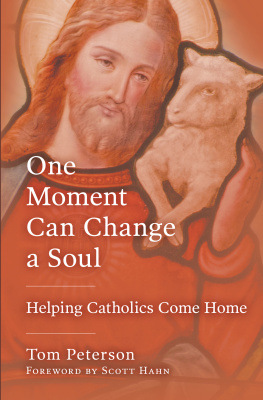
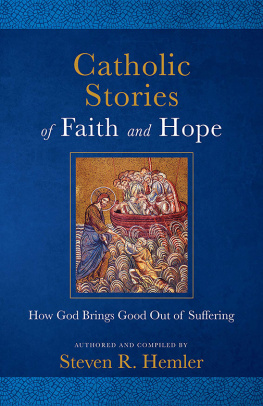
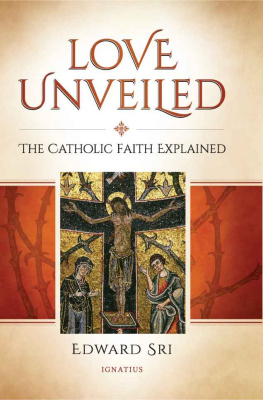
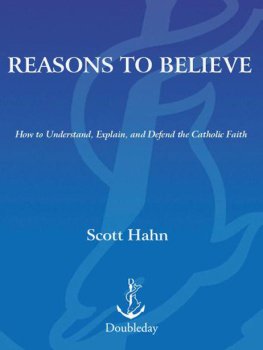
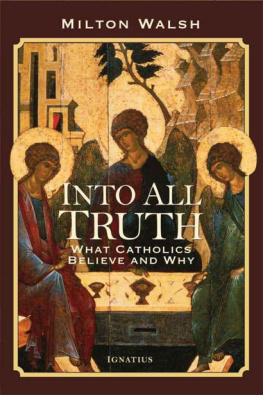
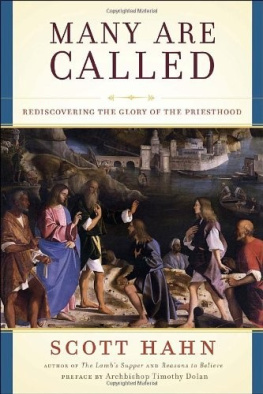
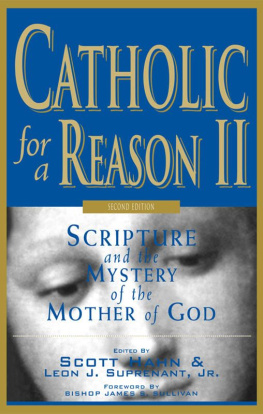
![Scott Hahn [Inconnu(e)] - A Father Who Keeps His Promise: God’s Covenant Love in Scripture](/uploads/posts/book/134748/thumbs/scott-hahn-inconnu-e-a-father-who-keeps-his.jpg)
